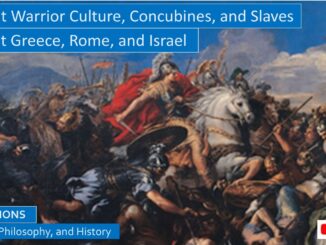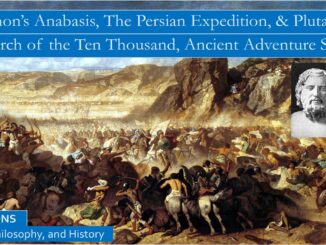
Horses and Cavalry from Xenophon in Ancient Greece to the American Civil War, and in New York City
From antiquity, in combat, horses had three roles: hauling supplies, fighting in highly mobile cavalry regiments, sometimes pulling chariots in ancient times, and enabling generals to quickly survey the battlefield. From ancient times, in both war and peace time, technological improvements meant horses could be used more effectively. Improved harnesses made chariot warfare common throughout the Ancient Near East, quite often several archers would ride in the chariot. In the Old Testament, we read that King Ahab died when an arrow struck him in his chariot, likely he was standing next to an archer. […]





